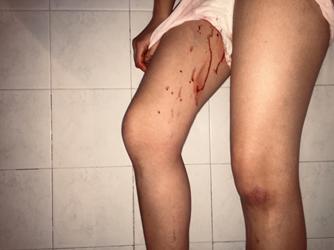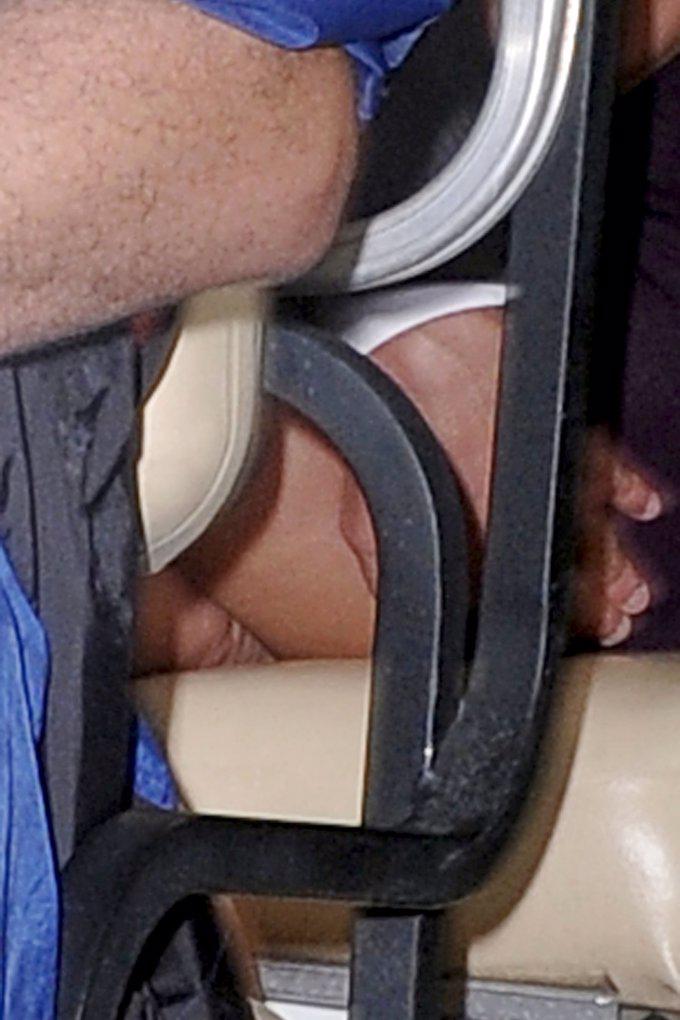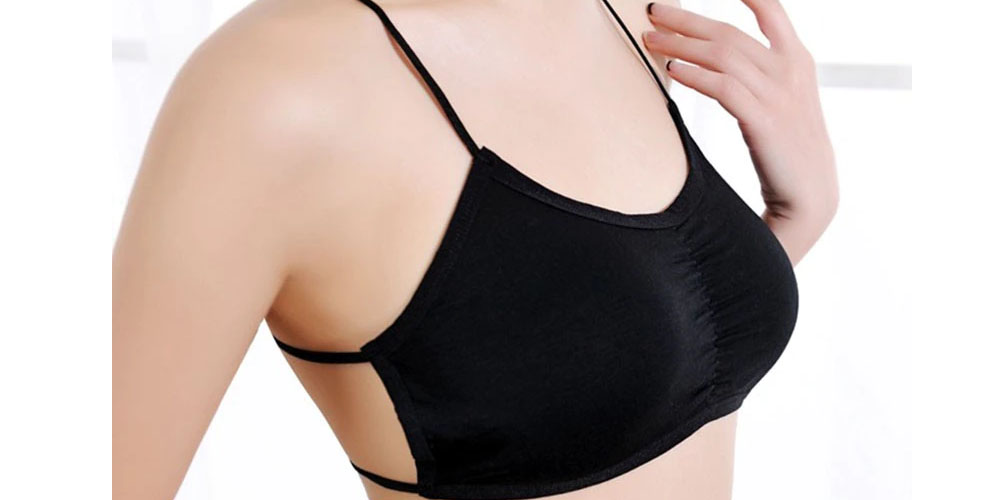How does a woman live in menstrual poverty in Nuquí, Chocó?
Menstrual poverty or better known as the lack of feminine hygiene products, little education and lack of infrastructure for waste management, has been a derivation mainly of the economic poverty of the country, which has generated inequalities This can be seen in vulnerable communities such as Nuquí, a Colombian municipality located in the department of Chocó. It is difficult for women in the municipality of Nuquí to acquire feminine hygiene products to manage their menstruation, a completely natural condition but which, due to external circumstances, has become a monthly problem for women. Many have had to resort in last instances to using resources that are not as healthy as the use of rags and risk having direct consequences on their health.
What is the government doing?
Taking into account that women who live in remote parts of the country do not have adequate menstrual management, it is necessary to start proposing public policies to identify situations of vulnerability in the territory and deploy actions that allow girls, women and menstruating people, who are in this vulnerable situation, carry their menstruation in decent conditions, for example, guaranteeing access to drinking water.
On September 15, 2021, the Government filed, through the consideration of the House of Representatives, the bill "Menstrual Rights" that seeks to guarantee menstruating women an initiative of guidelines for the implementation of a policy public, however, they are laws that have not yet been implemented as in the municipality in Nuquí. For this reason, an attempt was made to contact the Mayor's Office of that town until the investigation was closed, but it was not possible because they do not handle the issue and there is no person in charge, because they do not see it as a necessity.
Jorge Benedetti, representative to the chamber in the department of Bolívar and one of the proponents of the bill, affirms: “In Bill 332 of 2021, together with senator Ana Castañeda, we propose several measures to combat this problematic. First, we propose that sanitary pads, disposable sanitary towels, tampons, panty liners, menstrual cups, sanitary napkins, absorbent underwear, menstrual pads, and marine sponges, all hygiene and menstrual management products, be exempt from VAT. . In other words, neither producers nor consumers of these products are charged the sales tax”.
In Nuquí, social inequality has caused women, who still do not have sufficient access to different optimal resources for the development of menstruation, to be forced to resort to methods that are not so healthy and, in some cases, to not being able to manage their menstrual cycle in the best way, since many of them stop attending school or work when they are on their menstrual cycle days.
Another of the managers of the bill is the Senator of the Republic Ana María Castañeda Gómez who tells of the strategies that are being made known in the Congress of the Republic of Colombia in cooperation with the legislative power:
“From Congress we have sought to guarantee the rights to menstrual management. This bill translates into attention to 3 strategic lines: zero taxes on menstruation supplies, access to sanitized supplies and spaces, and the creation of a public policy that raises awareness and breaks the stigma against menstruation. This law would be the first step to correct the deficiencies in sanitary infrastructure for the proper management of menstruation; overcome supply shortages; reduce economic stress due to expenses for menstrual management; educate about the behaviors of the menstrual period and, above all, break the silence that surrounds the natural cycle that can lead to ignorance and oblivion, even in political settings”.
Currently, from the legislature, several initiatives are being processed to guarantee access to menstrual management products, the Senator continues explaining: "We want to address it as an inescapable right that women have, including access to products and free supply in those cases in which menstruating girls, women or people in special socioeconomic situations are involved, the installation of a health care protocol to adequately attend to situations derived from the menstrual experience to avoid lack of timely diagnosis and the creation of plans of revision, adaptation and education in public institutions and educational institutions so that the women that integrate these sectors can have optimal conditions and privacy at the time of their menstrual management. With which we hope to help especially populations that greatly face menstrual poverty such as the women of Nuquí ”.
Regarding this problem, another class of bills related to menstrual hygiene have been signed, in order to close the inequality gaps in the face of the difficulty in accessing these products. On July 23, 2021, the representative to the chamber, María José Pizarro Rodríguez, filed bill 054 of 2021 of the Senate through which access to menstrual hygiene products is guaranteed to people who need them and other provisions are issued: "This project seeks to guarantee access to menstrual hygiene products for people who menstruate and who belong to strata 3, 2, 1 and to the street population, to safeguard the rights to health and human dignity, leaving this obligation in the hands of the Health Promotion Entities of the contributory, subsidized regimes or, failing that, to the municipal, district or departmental Health Secretariats”, the representative expressed to the chamber.

It is also intended to guarantee the free provision of supplies necessary for menstrual management to those who live in rural areas, who are in duly declared emergency situations, in a school situation, in a postpartum state, who are classified within the group A of SISBEN, homeless people, prison population and women and transgender people engaged in paid sexual activities. Within these parameters the population of menstruating people of Nuquí can be included
Finally, in the middle of the discussion of the recent tax reform, María José Pizarro Rodríguez presented a proposal with which she wanted to exclude VAT from menstrual cups and absorbent women's underwear, whose unit sale price is equal to or less than five Tax Value Units UVT. However, this proposition was not endorsed by the Ministry of Finance, which is why it was not approved.
Contribution of the private company
To carry out this research, a request was sent to two private companies: Familia and Kimberly-Clark, which produce brands such as Kotex and Nosotras, feminine hygiene articles, to learn about their strategies to help remote populations such as Nuquí , however, there was never a response until the closure of this investigation. On the companies' web pages, it was found that there are publications that encourage the community to buy products such as sanitary towels and tampons and, in this way, they can donate, which shows that it is an initiative for the well-being of companies and not from the community.
Second Section
Donations and Enterprises: An alternative for menstrual management
The female population of Nuquí has received orientation help through workshops carried out by the WAM enterprise whose function is to educate women regarding the menstrual cycle and everything related to the subject of their body, apart from carrying out donations of menstrual cups, all with the aim of leading a healthier life, both for the woman's body and for environmental protection.
The community, due to the poverty it suffers from day to day, prefers basic necessities to arrive instead of feminine hygiene products, which is why they decide to move to the background this kind of products that, according to the conception Many people do not see it as an important or relevant issue because it is not usually talked about much and they choose other types of priorities. The situation has caused different negative effects such as: lack of confidence, lack of learning about their own development and the deprivation of attending different settings, including school, all due to fear and ignorance of the subject.
The central issue is the lack of education, which is why the social enterprise WAM decided to hold self-love workshops with women from Nuquí, between the ages of 12 and 35, with the aim of conducting orientation on the female body and your menstrual cycle.
The 20 women from Nuquí who were present at the workshop on self-love and menstrual cycles showed their empathy and the intention to use the menstrual cup, a container that is inserted into the vagina to collect bleeding. According to the participants, the workshop revolutionized not only their lives and those of their families, but also a community. Starting to talk about these issues is the first step to achieve big changes.
The WAM venture distributed the workshops and the donation of the cups as follows:
Although private companies do not have the strategy of donating hygienic products for women, the enterprises are those that have been interested in collaborating with menstrual management, for example, La lunera, a distributor of feminine hygiene products, had the initiative to donate 70 menstruating cups of the Life Cup brand, the donation was made in the municipalities of Nuquí and Bahía Solano, in the department of Chocó, from January 9 to 15, 2020.
The distribution of the delivery was made as follows:
Third Section
What do the women of Nuquí say and what is the medical contribution?
Lina Briyi Moreno Echavarria is a resident of the municipality of Nuquí who spoke about the way women in the municipality live with menstrual management and the taboos that revolve around the subject.
Two municipalities where feminine hygiene products arrive
1. How does a low-income woman experience her menstruation in Nuquí?
From my own experience I can say that for a low-income woman having a menstrual period is a problem and why a problem? that forces them to look for other options such as using scraps of cloth or old rags that are not highly recommended, since there are fabrics that cause irritation and even infections; or buy the towels per unit, which is even more expensive because the access points to Nuquí are only by sea or air, therefore, the costs of personal hygiene products are more expensive compared to other places, in addition , there is not much variety and in the most extreme cases it forces women to go into their homes without being able to go out to work or do their chores until the menstrual period passes. Therefore, living with your period can sometimes be a problem, although also culturally speaking it is a very careful stage, since in our communities there are various beliefs about the menstrual period, which makes women be careful, such as Example: Do not visit rivers, the sea, the mountains, etc., in addition to being careful with snakes. It is a difficult stage but one that is carried out with great care due to beliefs.
2. How often do feminine hygiene products arrive in Nuquí?
Menstrual products arrive every time the ships arrive from Buenaventura and this is every 15 to 20 days, depending on how long each ship takes to arrive or by plane, which is not very common, since the cost of air transport is Much higher than by boat.
3. Who is in charge of bringing the feminine hygiene products to the women?
Feminine hygiene products arrive in the municipality through bulk stores and pharmacies.
4. What happens when the products don't arrive? What do they do?
When there is a shortage of products for different reasons, women have to resort to ancestral practices such as the use of fabrics and homemade solutions to avoid accidents.
5. How much does a package of sanitary towels, tampons or daily protectors cost in Nuquí?
The price varies according to the brand and there are from 6 thousand, 8 thousand, up to 10 thousand and up to 12 thousand pesos.
6. How do you get these products, do you receive donations?
No, the products are obtained by buying them at points of sale, if the person wants to obtain these products they must work to obtain the money and take care of buying them.
7. Are the majority of Nuquí women in a position to buy these products?
No, most women do not have enough resources to support themselves during the time of their menstrual period.
8. Is the purchase of sanitary towels a priority for the women of Nuquí?
No, most prioritize other household needs over buying sanitary napkins or other toiletries.
9. Are there taboos regarding menstruation? which is it?
Yes, one of them is that men do not buy personal hygiene products for women because they are terrified of being seen with these items, they do not talk openly about this topic because it is considered unpleasant, having a menstrual period is considered that women are sick for some reason and that they should not be around other people or attend events, or the beach, among other things.
Why is it important for women to know their bodies?
Obstetrician Gynecologist Catalina Agudelo Restrepo explains the importance for women of knowing their anatomy, because due to the lack of education, many grow up with doubts regarding their menstruation, for this the support and knowledge of professionals with medical specialty is important which are mainly in charge of studying the female reproductive system.
1 From your profession, how do you see the problem of the lack of feminine hygiene products in Nuquí, a municipality of Chocó?
Menstrual poverty is a very sad topic because unfortunately there are women who do not have the necessary products to manage their menstruation each month, which means that they have to use more rudimentary products that generate poor hygiene and increase the risk to health of women, because such practices favor vaginal infections.
2 As a professional, what do you recommend to women who have little access to the use of feminine hygiene products? What should they wear?
I recommend using menstrual cups, first for health, because it is a material or a device that does not generate any type of change in the pH, that does not release chemical products into the vagina, nor does it favor infections.
3. Today there are numerous stigmas and taboos about menstruation, due to the lack of access to menstrual education, how would you educate a woman who is starting this new stage in her life?
First, teach them the anatomy: menstruation is through the vagina, and the urethra is where we urinate, because there is a lot of confusion and we think it is the same orifice. Also explain to them what the uterus is, what it is for and why menstruations occur, which is basically a preparation of the interior of the uterus for a future pregnancy, but the first years that maturation is delayed, so girls, generally, at first they go to have menstrual irregularities. That also has to be explained. The other very important thing is that they know the adequate amount of menstruation and emphasize the need to consult a doctor if there is very abundant bleeding or if there is very strong pain.
Next, the image will show the different parts of the female anatomy.
4 What do you think about the taboos and beliefs that are still held regarding menstruation?
It is an issue that has already been sent to be picked up, this often causes women not to consult on time because they believe that situations such as severe pain or heavy bleeding with clots are normal, they are embarrassed or embarrassed to talk about this with their parents or attending a doctor, is a normal topic that happens every month in women and which should be discussed openly.




